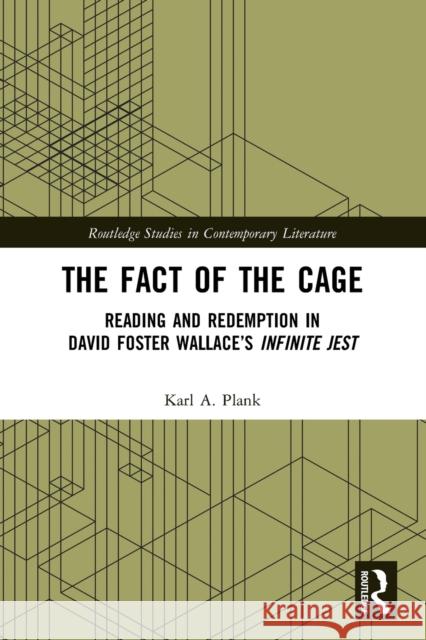The Fact of the Cage: Reading and Redemption In David Foster Wallace’s "Infinite Jest" » książka
The Fact of the Cage: Reading and Redemption In David Foster Wallace’s "Infinite Jest"
ISBN-13: 9780367698874 / Angielski
The Fact of the Cage: Reading and Redemption In David Foster Wallace’s "Infinite Jest"
ISBN-13: 9780367698874 / Angielski
(netto: 195,86 VAT: 5%)
Najniższa cena z 30 dni: 193,46
ok. 16-18 dni roboczych.
Darmowa dostawa!
Plank’s study makes the case that reading fiction matters, that reading David Foster Wallace’s Infinite Jest is a stubborn act of ethical and religious significance, that the trek through its many pages may, in the end, redeem its reader from the lethal loneliness that is "the fact of the cage."
David Foster Wallace’s Infinite Jest raised expectations of what a novel might do. As he understood fiction to aim at what it means to be human, so he hoped his work might relieve the loneliness of human suffering. In that light, The Fact of the Cage shows how Wallace’s masterpiece dramatizes the condition of encagement and how it comes to be met by "Abiding" and through inter-relational acts of speaking and hearing, touching, and facing. Revealing Wallace’s theology of a "boneless Christ," The Fact of the Cage wagers that reading such a novel as Infinite Jest makes available to readers the redemption glimpsed in its pages, that reading fiction has ethical and religious significance—in short, that reading Infinite Jest makes one better. As such, Plank’s work takes steps to defend the ethics of fiction, the vital relation between religion and literature, and why one just might read at all.











